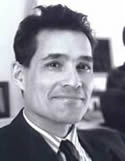Missing Person Cases Make Closure Difficult
Professor of clinical psychology George Bonanno believes missing person cases can make it difficult for those left behind to feel a sense of closure. Bonanno, who studies bereavement and loss, said it can be hard to move on and accept the permanency of separation when there is no body to bury. "On some level, that is why we have funerals and rituals. It helps us accept that death happened," he said. "How can you mourn something if you are not 100 percent sure you have lost it?"
Bonanno said long-term searches continue because there is no specific time period within which they should end. But, he recommended, "If there are very high odds the person is dead, you might consider advising the person to move on. I would imagine if they are actively looking, it is pretty anxiety-producing," he said. "I would imagine that is a very tough road to travel."
The article, entitled "Searching for Debbie," appeared in the March 6 edition of Raleigh News & Observer.
Published Thursday, Mar. 10, 2005
